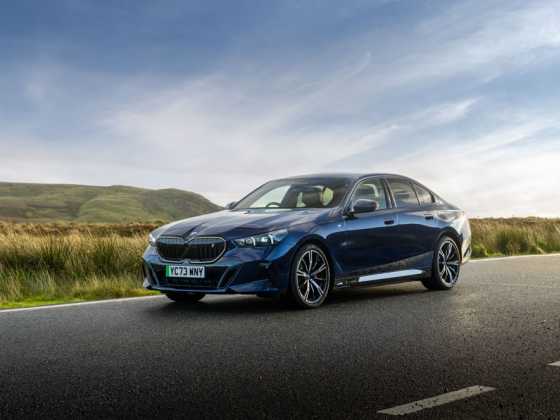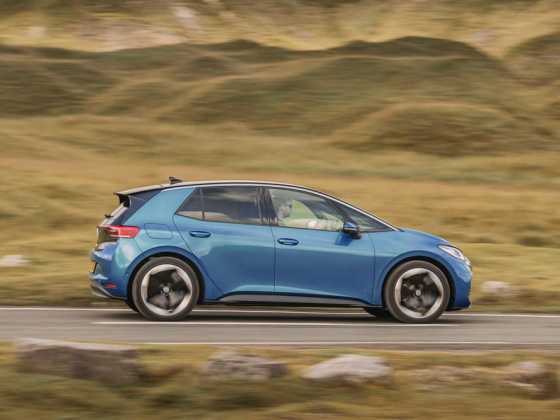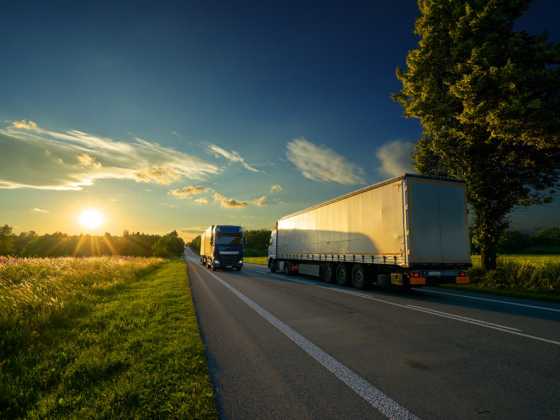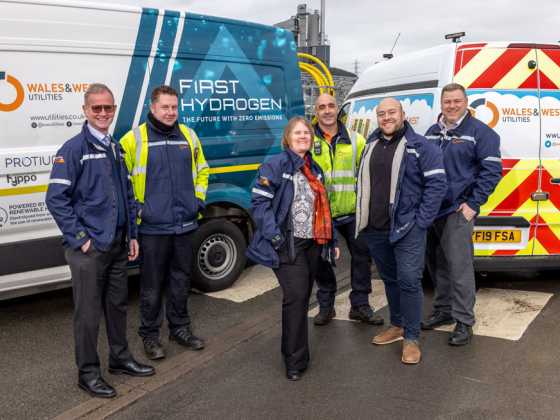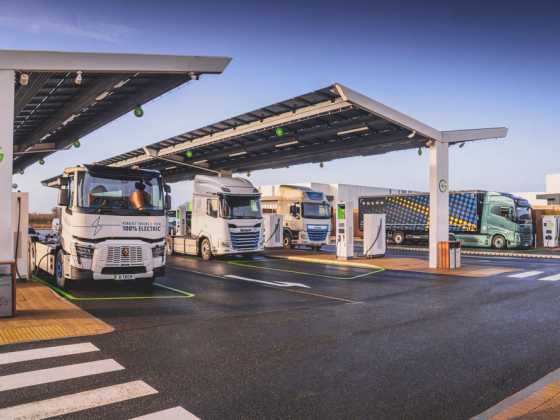Burning rubber
When it comes to greening the fleet, tyres are often overlooked. After all, how much difference can your choice of rubber make to the overall efficiency of a fleet? Rather a lot, it turns out
 As the only part of the vehicle that touches the ground, tyres play a big role in determining fuel efficiency, rolling noise and safety characteristics such as handling and braking. Developments in tyre technology mean that tyres are becoming more energy efficient, quieter and safer than ever, but there is still huge variation in the performance of the tyres currently on sale in the UK. By choosing better tyres you can cut fuel bills and CO2 emissions whilst also reducing vehicle rolling noise and improving the safety of your fleet.
As the only part of the vehicle that touches the ground, tyres play a big role in determining fuel efficiency, rolling noise and safety characteristics such as handling and braking. Developments in tyre technology mean that tyres are becoming more energy efficient, quieter and safer than ever, but there is still huge variation in the performance of the tyres currently on sale in the UK. By choosing better tyres you can cut fuel bills and CO2 emissions whilst also reducing vehicle rolling noise and improving the safety of your fleet.
ROLLING, ROLLING, ROLLING
The most important aspect of tyre design relating to fuel efficiency is rolling resistance. Rolling resistance is the friction that a tyre creates as it rolls down the road. It is caused when the tyre tread deforms as the wheel rotates, losing energy as heat. The greater the rolling resistance, the more power that the engine needs to drive the vehicle along and the more fuel it consumes. On average, tyre rolling resistance accounts for 20-30 per cent of a vehicle’s fuel consumption.
Low rolling resistance tyres are designed to minimise the heat loss, thus reducing fuel consumption. Great strides have been made in this technology recently and the best performing car tyres on the market are ten per cent more fuel efficient than the worst performing tyres. Van and truck tyres can achieve even bigger savings.
PERFORMANCE WHEN WET
When choosing low rolling resistance tyres it is also vital to consider their wet grip performance, which reflects the tyre’s ability to brake on wet roads. Balancing rolling resistance and wet grip has been a big challenge for tyre manufacturers because grip is best served by rubber compounds which absorb high levels of energy, while reducing rolling resistance requires compounds which absorb low levels of energy.
Developments in tyre technology – such as the addition of silica to the tyre tread compound – means that there are now energy efficient tyres on the market which can match and even exceed the safety performance of standard tyres. However, not all tyres perform equally and the best tyres on the market can stop a massive 18 metres earlier than the worst in wet conditions.
Longevity is another important consideration when selecting tyres for a green fleet. Longer lasting tyres will reduce raw material consumption and related carbon emissions. Hard wearing tyres also emit fewer particles, which has benefits for air quality. In the past there were concerns that low rolling resistance tyres were less durable than standard tyres but evidence suggests that the latest generation of low rolling resistance tyres perform well in durability.
VEHICLE NOISE
A final consideration for sustainable fleets is tyre rolling noise, which is the dominant source of vehicle noise above speeds of around 25 mph. At present the quietest tyres on the market can cut rolling noise almost in half. By choosing these tyres for your fleet you can make an important contribution to reducing traffic noise – which currently affects six million people in the UK, leading to sleep disturbance, increased stress, raised blood pressure and even heart attacks.
From November 2012 it will be easier to buy better tyres because new tyre labelling legislation recently agreed by the EU will be implemented in the UK. This will require all tyres to be labelled at point of sale with information on rolling resistance, rolling noise and wet grip. Tyre manufacturers will also have to display this information on their websites.
Rolling resistance and wet grip will be measured on a scale from A to G, with A being the best performers and G being the worst. Rolling noise will be measured in decibels split into three categories represented by black sound waves. One sound wave will demonstrate that the tyre is 3dB less than the future tighter European limit. Two black sound waves will demonstrate that the tyre is already compliant with the future European limit and three black sound waves will demonstrate that the tyre is compliant only with the current European limit (see label).
In the meantime, the Campaign for Better Tyres is working with UK and European partners to provide fleet managers with data to help them compare the performance of tyres currently on sale in the UK. We recently published some tyre comparison data from the Dutch government, which commissioned the testing of tyres in terms of rolling resistance, rolling noise and safety performance.
The data is available to download for free from the Campaign for Better Tyres website at www.bettertyres.org.uk/why-better-tyres/buying-better-tyres.
MORE INFORMATION
Please visit www.bettertyres.org.uk or contact Carina Perkins at carina.perkins@environmental-protection.org.uk
BUYING TYRES MADE EASY
From November 2012, it will be easier to buy better tyres because new European legislation will require all tyres to be labelled with information on fuel efficiency, rolling noise and wet grip. This information will also be available on tyre manufacturers’ websites. In the meantime, ask your tyre supplier for tyres which have:
• Low rolling resistance
• Low rolling noise
• Good wet grip
• Good longevity
About the Campaign for Better Tyres
The Campaign for Better Tyres is dedicated to promoting energy efficient, low noise and safe tyres with the aim of cutting transport related emissions, reducing traffic noise and improving fuel safety.
The campaign is being run by national charity Environmental Protection UK, with funding from the Esmée Fairbairn Foundation and the European Federation for Transport & Environment.
Partners of the campaign include the Low Carbon Vehicle Partnership, the Society for Motor Manufacturers and Traders, the Parliamentary Advisory Council for Transport Safety, Motor Codes, the Institute for Car Fleet Management, Green Transport Network, the National Business Travel Network.

